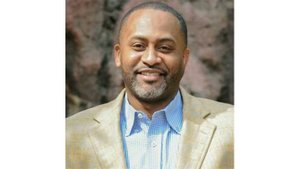By Rev. Earle J. Fisher, Special to The New Tri-State Defender

I’ve been in public ministry for almost 15 years now. I’ve been a senior pastor for about five. I am a student of black liberation theology. I am, unashamedly, a scholar-pastor and a movement minister – I am intentional about being informed and involved in The Movement for Black Lives. It’s what Jesus would do. The Movement has made my preaching, teaching, pastoral care and civic engagement richer and more righteous.
What has impacted me the most is the way The Movement demands that I balance academic theories, traditional church trainings and social activism in a very practical way. I have come to see all of these different areas of my formation as necessary if who I am and what I do is going to have a positive impact on my community, church and personal life.
I must admit, this is not easy. It’s a constant struggle to live at the intersection of being a scholar, spiritual leader and social activist. The strain is not rooted in the incompatibility of what I do (and who I am) with what the world needs or what God is requiring of us. The source of the tension is in the fact that 21st century churches (and most people in The Movement) have come to assess and expect the church to be irrelevant and unnecessary with regards to issues of social consciousness, social justice and political empowerment.
As a result, the church continues to hemorrhage in both membership and influence. A recent pew research poll indicts the church for losing its ability to aid in solving social problems. According to statistics, while about 38 percent of U.S. adults still believe churches, synagogues and other houses of worship contribute “some” to solving important social problems, the number of people who are “yet holding on” is dwindling. The same poll says numbers have “declined sharply in recent years, from 65 percent in 2012 and 75 percent as recently as 2008.” That’s a 37 percent drop in about 8 years. Lord, help us!
So many churches are out of tune and out of touch with The Movement because we are wed more to an ahistorical and antiquated tradition than we are committed to a sincere and impactful spirituality. In 1972, the Rev. Albert Cleage Jr., prescribed, “Only if we can rediscover the historic roots of Christianity and strip from them the mystical distortions…will we be able to bring the Black Christian Church into the Liberation Struggle and make it relevant to the lives of Black people.”
In spite of the abysmal figures, I still believe there are certain things only the Black Church can do. The Black Church is still, for-better-or-worse, the most autonomous black institution in our communities. Therefore, what we need to do is leverage these institutions to work towards the liberation of black people and away from our continued oppression.
A transition must take place. I believe it has already begun but we have a long way to go. Black faith must be – and do – more than the mere recitation of cheap church tropes and bad theology that makes folks shout and dance but ignores structural inequities and damnable living conditions.
The standard of ministry for the past several decades has been one of profit over people, church budgets instead of communal benevolence and social club cache as opposed to social justice in Jesus Christ. That residue remains. This forces faith leaders in The Movement to have to navigate friendly fire from both sides of the social justice struggle. But yet, we march on.
Pastors all over the city are brainstorming about how to coalesce and get more actively involved in The Movement. Although that is commendable, it is not time for a victory lap.
The only way pastors can engage effectively (and subsequently get their congregations involved as well) is through the raising of our collective social consciousness in a way that makes social justice theology a righteous requirement and not an ecclesiastical elective. In other words, faith leaders would have to adopt and embrace a revolutionary theology – or dare I say a #BlackLivesMatter theology. I know that requires some heavy lifting, so I’ll save my reflections on what that looks like for a future article. Meanwhile, stay tuned and #StayWoke.
(The Rev. Earle Fisher is senior pastor of Abyssinian Baptist Church and co-spokesperson for the Memphis Grassroots Organizations Coalition.)